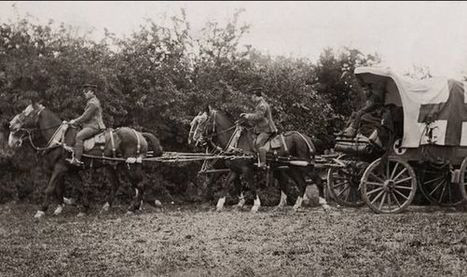See revolutionary Russia through British archives. Primary sources on Russia and its relationship with Britain between 1917-1928.
Get Started for FREE
Sign up with Facebook Sign up with X
I don't have a Facebook or a X account
 Your new post is loading... Your new post is loading...
 Your new post is loading... Your new post is loading...
|

Fran Jurga's curator insight,
February 27, 2015 9:59 PM
@FranJurga writes: The British military obviously has a policy for evaluating sick or injured horses and a decision process for deciding which ones are rehabilitated and which are euthanized. This report in a British newspaper suggests that the number of horses in the latter category is deemed too high by "animal rights campaigners"--although only one group is quoted.
British military horses perform ceremonial duties and entertain the public in demonstrations at events. They work very hard and most live in cramped city conditions with little turnout or vacation time, thanks to military traditions and busy performance schedules.
Perhaps the thing to protest is whether or not the military horses enjoy the same standard of health as other British horses. Hopefully, they do. If not, we should all protest on their behalf. |













